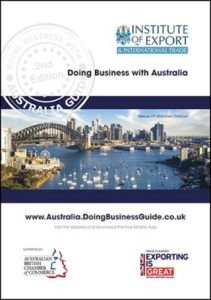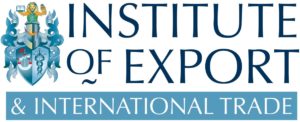Are you moving to Australia and renting out your UK property? If so, you will be classified as a ‘non-resident landlord’ by HM Revenue and Customs (HMRC).
Below we have covered some of the popular UK tax issues and questions that arise when becoming a non-resident landlord:
How do I stop my estate agent or tenant from deducting UK tax at source?
If you have been determined as a non-resident landlord of the UK, your letting agent or tenant will deduct basic rate tax (20%) from your rent. Once the tax year is complete, your estate agent or tenant will provide you with a certificate certifying how much tax they have deducted in the relevant tax year.
As a landlord, cash flow is important, therefore it’s likely you would prefer to receive your rent in full and pay any tax due through your UK self-assessment tax return.
The way in which you can receive your rent in full, prior to any taxation, is to file a non-resident landlord form (NRL1). Once the form has been approved, HMRC will inform your letting agent or tenant to stop deducting tax from your rent. From there on, you will receive your rent in full without UK taxation. Any tax deducted earlier in the year will be refunded on your next rental statement.
However, it is worth noting that HMRC will only approve your NRL1 application if your taxes are up to date. For example, you have no outstanding tax or tax returns due.
What expenses can I claim on my UK property income?
If this is your first experience of being a landlord, you may be unsure about what expenses are tax deductible. HMRC iterate that for an expense to be allowable for tax purposes, it should be incurred wholly and exclusively as a result of renting out your property. Typical expenses include buildings insurance, estate agent fees and utility bills (only if not reimbursed by tenants).
In some instances, what you assume are revenue expenses may in fact be ‘capital expenses’ for example, improving or upgrading something that was existing. Capital expenses are not allowable and cannot be claimed against rental income, however you might be able to set them against capital gains tax if you sell the property in the future. You should seek professional advice if you’re unsure on the tax treatment of your property expense.
Since April 2020, you have no longer been able to deduct any mortgage expenses from taxable rental income. Instead, mortgage interest is used as a tax reducer, where you receive a tax credit based on 20% of mortgage interest payments. For example, if you make mortgage interest payments of £5,000 per year, you will receive a tax credit of £1,000 to deduct from the liability incurred on your property income.
Will I be taxed on my UK rental income in Australia?
Whether you’re taxed on your UK rental income in Australia will depend on the type of tax resident you are. There are three main types of residents in Australia: Australian resident, foreign resident and temporary resident.
If you’re classified as a ‘foreign resident’ or ‘temporary resident’ working in Australia, you generally don’t need to declare income you receive from outside Australia in your Australian tax return. Therefore, as long as you remain a ‘foreign resident’ or ‘temporary resident’, you will not be taxed on your UK rental income in Australia.
However, in the event that you’re an ‘Australian resident’ for tax purposes, you must declare all income you earned both in Australia and overseas. In this instance, UK property income must be added to your Australian tax return. If you’ve paid tax in the UK on your UK property income, you may be entitled to an Australian foreign income tax offset.
Where an ‘Australian resident’ has property income from the UK, the Australia-UK double tax treaty becomes relevant.
Will I receive my UK personal allowance as resident of Australia?
When non-resident of the UK, it’s only in certain circumstances that you will get a personal allowance of tax free UK income each year. These include the following:
• you hold a British passport
• you’re a citizen of a European Economic Area (EEA) country, or
• you’ve worked for the UK government at any time during that tax year.
However, under the double tax treaty between the UK and Australia, it’s likely as a resident of Australia that you will be entitled to the UK personal allowance. Thus, only the rental income over the UK personal allowance will be taxable in the UK.
How do I file my UK self-assessment tax return from Australia?
Regardless of whether you’re a resident of Australia, renting out a UK property automatically enters you into the UK self-assessment regime. The return will be used to calculate any tax liability arising from your UK property income and any additional UK taxable income.
The same Tax Return deadlines apply to non-residents as they do to UK residents – 31st January following the tax year end (31st October for paper returns). Automatic late filing penalties will apply after the deadlines have passed.
As a non-resident you are unable to use HMRC’s online services to file your return. Instead, you need to:
• Send your tax return by post
• Use commercial software
• Get help from a professional
Contact Us
If you need advice or assistance with your UK or Australian tax obligations, we are here to help. Simply send us an email at the address below to arrange a free initial consultation.
For enquiries please contact:
Ned Shelton
Director
Sheltons Accountants
N.Shelton@SheltonsGroup.com
Click here to read our blog where we compare the UK and Australian Tax systems
Back to Blogs













